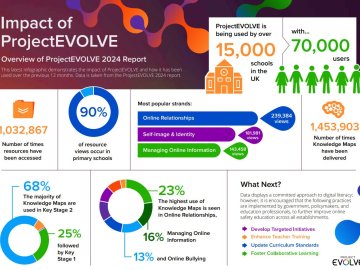The risks and rewards of gaming
Last month I gave an overview of gaming; who plays games, how they play, and what’s popular. Hopefully this demystified the subject for some of you, and shed some light on the current state of things in this rapidly growing industry.
As games become a more common feature of our everyday lives, it’s important to take a minute to consider how they can fit into social, professional and family lives. Are there any risks involved? And are there any benefits to playing them?
Are games safe for children to play?
Screen time is an important aspect to consider, as the long-term effects of screened entertainment are still in relatively early stages of research. The AAP (American Academy of Pediatrics) has advised against any screen time under the age of 2. Other research suggests that screen time shouldn’t be introduced until after children reach the age of 3. Above these ages, there are many ways that you to manage your child’s screen time in a healthy way.
Some of the most talked-about game series (Grand Theft Auto, Call of Duty) are adult-rated games with gameplay centered on violence. Unfortunately this can give off the impression that all games are violent, when in fact there are a huge amount of games with content that’s completely appropriate for children. The age rating system for games is called PEGI (Pan European Game Information) and works in a similar way to how films are rated – if there’s a big red “18” on the box then it’s a no-go for children and younger teenagers. PEGI ratings also flag up specific content like bad language, violence and sex. You can read a breakdown of PEGI’s age rating system and content descriptions on their website.
Things get a little more complicated when considering that many games are now purchased and downloaded through online stores. Age-verification blocks can be easy to bypass, potentially giving underage players access to inappropriate content. For this reason, all major games consoles have parental controls. You can read about them and access set-up instructions here. Mobile devices should have similar parental controls which can be set up via your mobile provider. It’s important to note however that even if a mobile game’s content is rated safe for children, it could have online features that open them up to communication with strangers.
A common and understandable worry for parents is that games are addictive. Games are made to be as fun and satisfying to play as possible, which understandably, can make them quite addictive. While it’s a valid thing to consider for your child, it should be treated on a case-by-case basis. Fear of addiction shouldn’t necessarily be a reason to avoid any contact with games at all. On a more positive note, games have been shown to benefit hand-eye coordination, puzzle solving, logical thinking, spatial awareness, teamwork and many other useful transferrable skills in young people.
Can games be sociable?
To an onlooker, gaming can seem like a solitary experience. Even if someone is playing online with others from across the globe, they are not making the same kind of social interactions they would be in the real world. However, friends and siblings will often play games together as a shared activity. Additionally, like any other interest or hobby, a love of gaming can be a great subject for people to bond over young and old. There are many gaming communities, groups and events across the UK that promote real world socialising over a shared interest in games. If you’re interested in finding such a group or event, it’s worth searching on Google or Facebook for anything in your local area.
Gaming is also something that can be enjoyed together as a family. Many multiplayer games are perfect for this, and even single-player games can be a shared experience with one person playing and others watching, or taking it in turns to play. www.askaboutgames.com/ has some great resources and stories from families who play games together. Sharing gaming with your children can be a way of being informed about what they’re playing, as well as making it a common interest to bond over and enjoy.
Can gaming be a career?
Absolutely, and the UK is a great place to do it. There are over 2000 games companies across the UK – some of which have developed hugely successful games such as the Grand Theft Auto series, Lego titles such as Lego Star Wars and Lego Batman, and the Fable series. Additionally there are roughly 217 accredited games-related courses run across the UK. You can find a list of these through Creative Skillset, alongside more information about careers in the games industry.
Children can start experimenting with making games from a young age with software like Scratch and Scratch Jr. Additionally, there some excellent initiatives for young people with an interest in games in the UK such as Junior Game Creators. There are also international initiatives like Girls Make Games which promote bringing more female talent into the currently male-dominated industry.
The quality of open-source and free game creation software is great nowadays. Unity and Unreal Engine are particularly well-known and industry-recognised examples. The availability of software such as these has caused a rise in “Indie” or independently developed video games, often built by individuals or small teams and self-published through platforms like Steam and itch.io.
eSports (“Electronic Sports”, or professionally played competitive gaming) is a rapidly growing form of entertainment across the globe, attracting audiences of over 20 million viewers in stadiums that would rival those of professional sports. These games are often played in teams in a tournament format, and can garner hundreds of thousands of pounds in prize money for the winning team.
Major UK football clubs such as West Ham and Manchester City have signed eSports teams, and retailer Game purchased the UK’s biggest eSports business, Multiplay, for £20m in 2015. On a more grassroots level, The National University Esports League (NUEL) has over 3000 players representing 110 universities across the UK. Playstation and Ukie have even started an eSports league for schools called Digital Schoolhouse, with the aim of engaging primary pupils and teachers with the new Computing curriculum.
With all of this in mind, it’s definitely an exciting time to have an interest in games. While it’s not for everyone, games can be an enjoyable and enriching part of your life.






